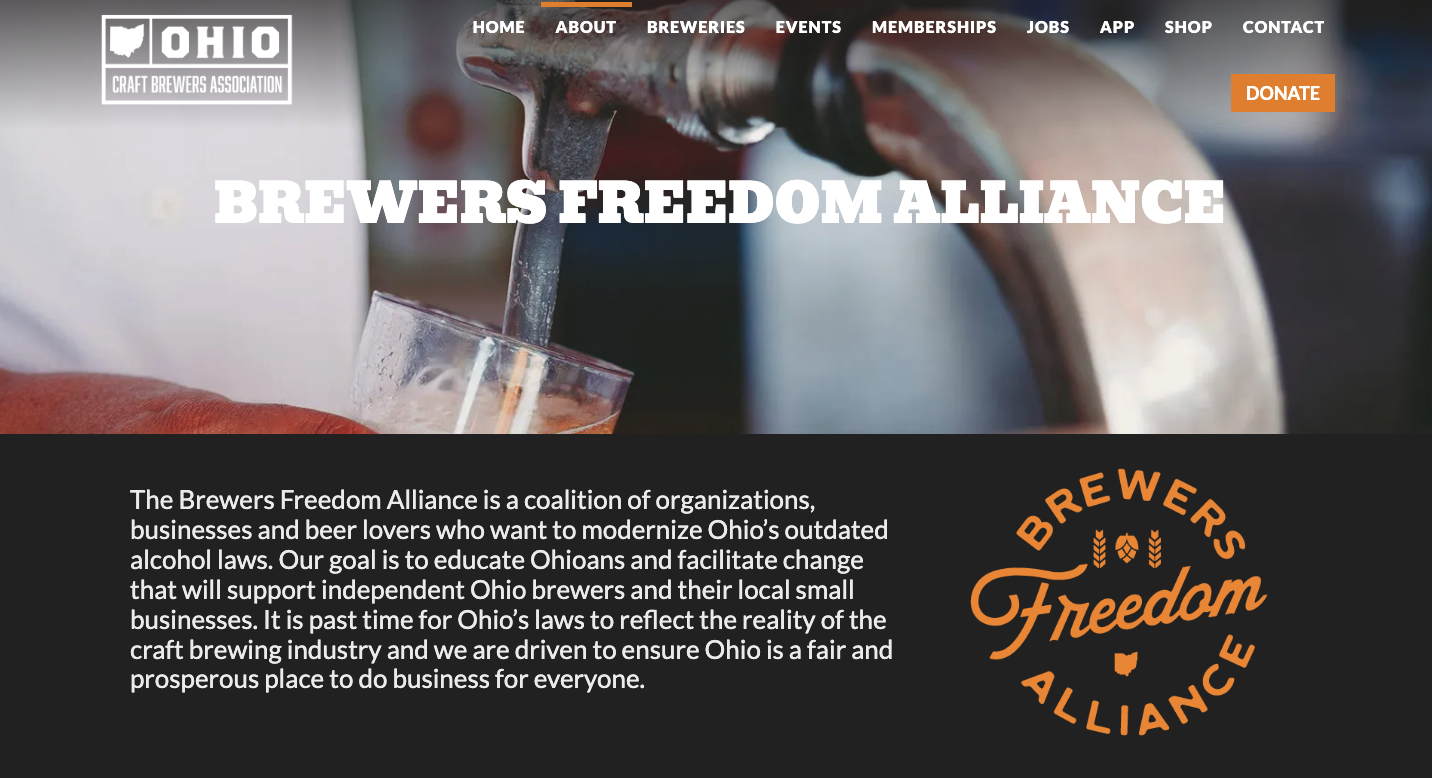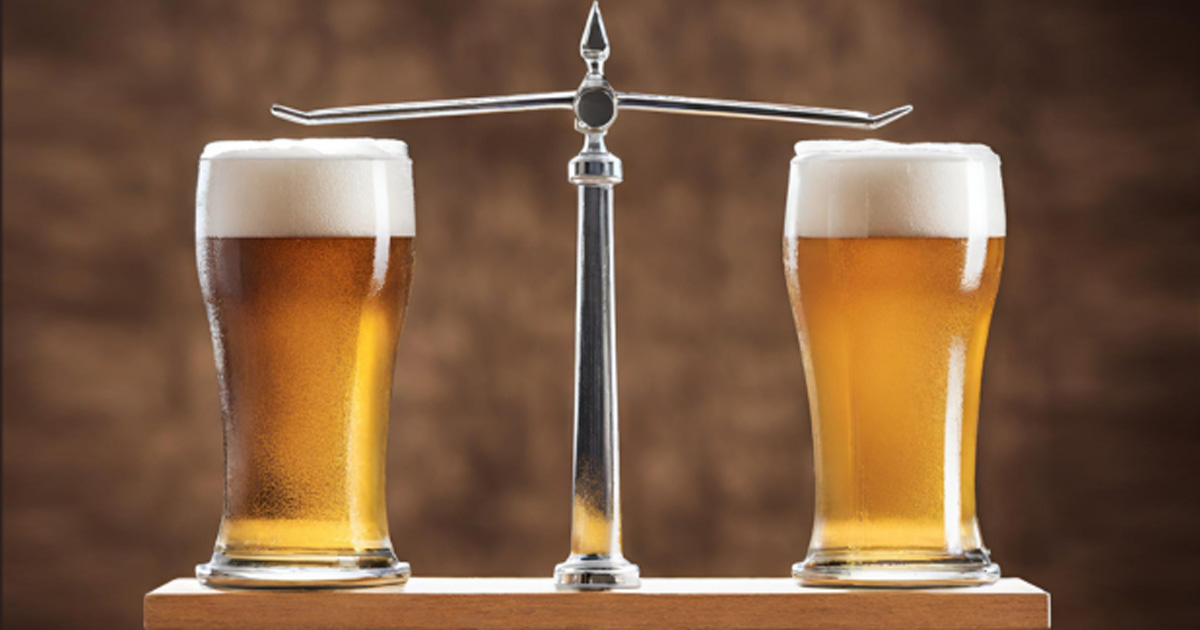Regulation Rollercoaster: Chasing compromise between small brewers and wholesalers
With almost 10,000 operating craft breweries in the United States vying for customer dollars and craft beer sales down about 2% coming out of 2023 (IWSR, January 2024), the need for regulatory reform for small brewers has become more important than ever.
Critical Knowledge
While not quite as enthralling as discussing the next IPA evolution or what kind of themed trivia works best in your taproom, owners and operators need to take heed of what’s brewing on the legal side of our industry, especially when it comes to distribution reform. Barriers to entering the wholesale market are too daunting for many smaller manufacturers in states where self-distribution is not an option, and with distributor consolidation becoming par for the course as the industry matures, craft beer brands all over the US are finding it difficult to generate incremental revenue from the wholesale channel. Not to mention the challenges they face once they align with a wholesaler – ranging from fighting for attention for their brand to SKU consolidation.
From a recent article in Brewbound by Zoe Licata, Bump Williams of Bump Williams Consulting stated that “the growth strategies of the three tiers have never been in alignment…and now, when you add in a fourth dimension–the consumer–it makes real volume growth highly unlikely and real [dollar] growth a very real challenge” (Brewbound, Jan 2024). So where does this leave small brewers that need market expansion to help boost their income statements? Between quite a large legal rock and a hard place. But members of the industry community, state guilds and trade associations are trying their best to move mountains in defense of smaller brands that are seeking brand growth in the wholesale channel.
Apples To Oranges
When it comes to regulatory issues in the wholesale channel, the most common complaint is in regards to beer franchise laws. Most beer franchise laws came about 40-50 years ago, when there were scant numbers of craft breweries (independents) operating in the US and over 5,000+ wholesalers who could distribute beer to retailers. Beer was the juggernaut and wholesalers were the scrappy owners fighting for revenue.
Franchise laws were created to protect distributors from their one big beer brand pulling their distribution rights, therefore eliminating profits from the sale of that brand to retailers and putting that wholesaler out of business. Other common provisions include rules about distribution agreements being put into writing, strict details and “just cause” provisions in termination clauses, prohibitions on price fixing, and brand exclusivity rights in certain geographic regions. Comparing the current craft beer landscape to this shadow of the past is like comparing apples to oranges–it’s a completely different environment.
The tables have now turned, with craft brewery owners being the scrappy ones fighting for revenue and market share, and beverage wholesalers holding the up-power position. With six-digits of brands in the independent beer space and only about 1,500 beer distributors to choose from, owners are being forced to work with large wholesale corporations that will “collect” their brand and put them at the back of the priority bus. And as distributor M&As continue to be the new norm in the wholesale tier, smaller producers now have even less choices for a beer distributor than ever before.

Misalignment
The issues between breweries and distributors begin with the nature of their businesses. A common goal of craft breweries is to sell products to multiple outlets, therefore increasing sales volume. While a common goal of beer wholesalers is to see a return on their investment of the brands they partner with to justify the time, effort and financial commitment they have put forth. So if a craft beer brand is not deemed worthy of the distributor’s share of mind, that brand could see less attention from their wholesaler, resulting in lower sales overall. If that brewery is beholden to a distribution agreement with a wholesaler in their home state, this severely limits their ability to increase sales.
These breweries are technically being held captive by the wholesaler by no choice of their own and limited by the distributor’s dedication to their brand. Whereas in a state with more lenient regulations about self-distribution, that same craft brewery could experience great success on their own by taking on the responsibility to self-distribute the products themselves, therefore having full control to increase sales volume. While this is a very rudimentary explanation of the supplier-wholesaler relationship, this typical situation is what independent beer industry advocates are trying to eliminate at the state level.
Climbing That Hill
With state legislation in full swing, beer trade associations are coming out in full force to help mount support for regulatory changes to franchise laws in multiple states. It’s been a mix of small victories, but also some great defeats. Massachusetts was the most recent big headline with massive franchise reform in 2021, allowing craft breweries producing less than 250,000 BBLs the right to end agreements with their wholesalers by choice. And Tennessee now allows breweries to self-distribute up to 1,800 BBLs of their own beer to retailers without a wholesale partner.
Most recently, Wyoming came up as a big winner in beer franchise law reform with Senate Filing 0079 passing to allow breweries producing less than 25,000 BBLs per year the ability to terminate their wholesaler agreements “without cause” by giving a 45-day good faith window and paying the Fair Market Value (FMV) to the distributor, thus removing expensive and tedious litigation practices to separate from an unhealthy contractual relationship. That bill now moves on to the House and both the Wyoming Brewers Guild and the Brewers Association government affairs team is extremely optimistic.
“This is a great step in the right direction for franchise law in the U.S.,” said Sam DeWitt, state government affairs director at the BA. “Finding common ground where brewers get immediate relief and freedom of movement in the marketplace and wholesalers are still comfortable with the compromise is what we were aiming for, and we were thrilled that Wyoming’s Senate has taken this seriously and prioritized the effort.”
Other states like Ohio, Florida and Connecticut continue to fight and make some progress towards beer franchise reform but have yet to find success. And most recently, the state of Georgia, despite the enduring efforts of Georgia Craft Brewers Guild and the Brewers Association to change the face of beer franchise laws with the Fair And Open Access To Market (F.O.A.M.) Act (State Senate Act 163), came up short by not even appearing on the vote docket by the Regulated Industries Commission.
Even though results have been mixed over the years, it’s becoming glaringly apparent that beer franchise laws must be amended in order to facilitate more growth for small producers in the craft beer industry, but they must also constitute a balance with upholding the tenets of the three tier system.
Want to help? Consider joining your local state brewery guild or government oversight committee with a trade organization. The only way change will happen is with mass support.








Submit a Comment